Unsung Asian islands
Pack your bags for these eastern outcrops where fresh footprints in the sand and the local culture will leave a lasting impression, says Fleur Rollet-Manus
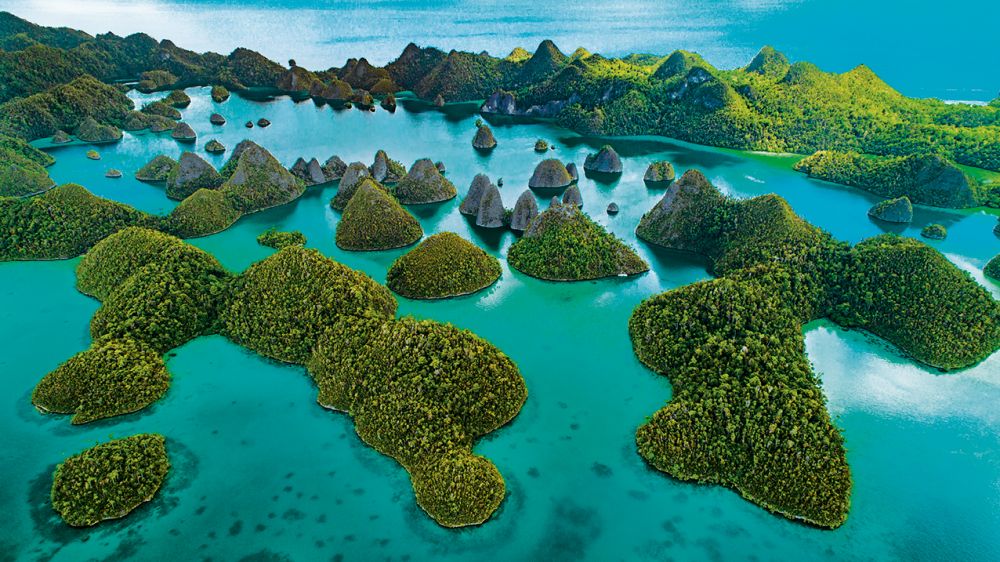
Pack your bags for these eastern outcrops where fresh footprints in the sand and the local culture will leave a lasting impression, says Fleur Rollet-Manus
Until recently, Mabul was a closely guarded secret within the diving community. A beneath-the-waves utopia awaits between here and neighbouring Sipadan Island, which is hailed as one of the best dive sites in the world. A short speedboat ride deposits you at the edge of Sipadan-Ligitan Outer Reef, the island’s back garden. Here, enormous bumphead parrotfish barge past schools of big-eye trevally, while blue-ringed octopus stalk the seabed. Experienced divers will relish the opportunity to explore one of the richest marine destinations in the world, although it’s equally beautiful on dry land.
Nicknamed the Malaysian Maldives, the accommodation
options here follow suit. Book in to Mabul Water Bungalows
for the best chance of snagging a diving permit to Sipadan and
a choice of 16 floating wooden bungalows smothered in creeping
bougainvillea. After a day spent among hawksbill turtles, grey
reef sharks and sparkling unicorn fish, retreat to your private
terrace where your own technicolour aquarium darts in front
of you. Fishermen float alongside bungalows offering the pick
of their catch for you to buy and take up to the hotel’s grill for
cooking at a minimum cost. Only 120 diving permits are granted
each day and staying here bumps you to the top of the list to get
one (expect to pay about £27 per permit).
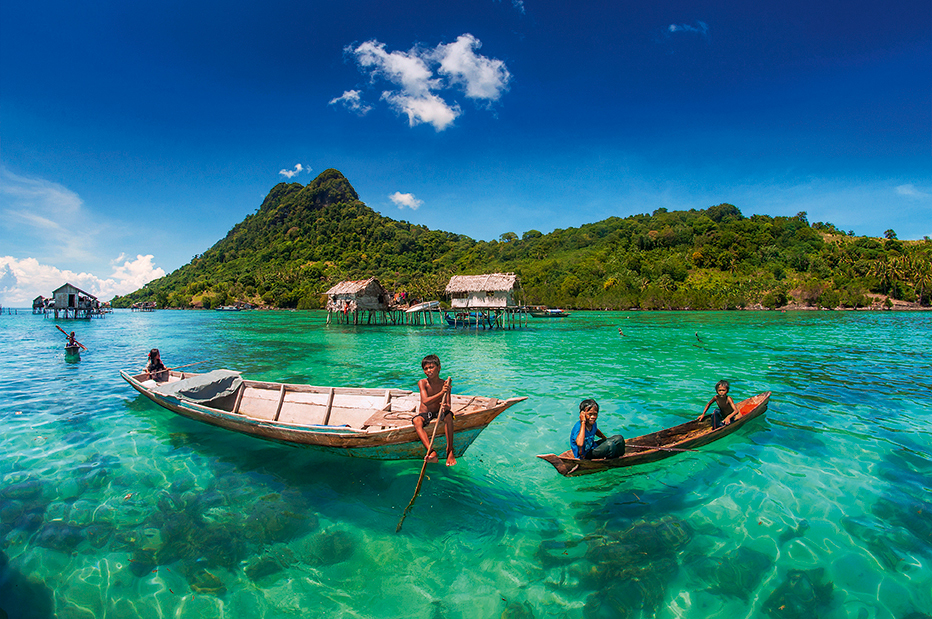
THE DETAIL Fly into Kuala Lumpur then on toTawau; it’s a 35-minute taxi ride to Sabindo Square, then a 90-minute bus to Semporna. The final leg is a 45-minute speedboat to Mabul, organised by the hotel. mabulwaterbungalows.com
Indonesia’s ‘Forgotten Islands’ are a cluster of 1,500 sparsely
populated atolls scattered like gemstones across the crystal-
clear waters. Part of the Coral Triangle that stretches from the Philippines to Timor and Papua New Guinea, these islands
have been a mere whisper in the ears of travellers for years,
largely due to a lack of quality accommodation. However,
recently there’s been a surge of pared-back lodgings to give the
destination a viable tourism economy. Raja Ampat offers good-
quality homestays, displaying a vast range of simple sanctuaries.
The archipelago has more in common with Fiji than the
rest of Indonesia’s islands and hospitality is second to none:
a welcome dance will greet you, followed by nightly banquets
and bowls brimming with kuah (yellow fish soup). Dip your toe in from November to March when the waters
are at their calmest. This is genuine, unspoilt paradise, without
the price tag. Homestays from £17. stayrajaampat.com
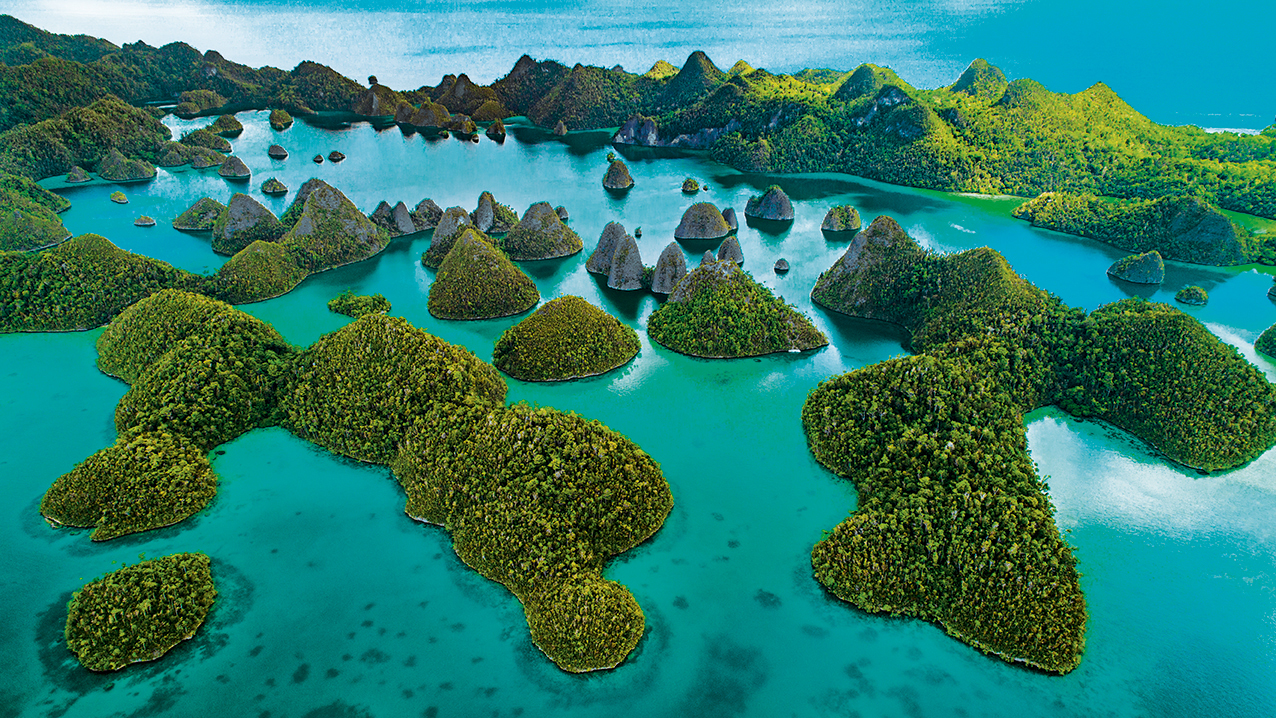
THE DETAIL Fly from Jakarta to Sorong, then take a flight to Marinda Airport in Waisai (the capital of Raja Ampat).
Much of the country may have been developed, but with some
1,400 islands Thailand still has plenty of shores left untouched.
Just 50km from the mainland lies Koh Mak, an island owned
by five families. Everyone who visits here pitches up and pitches
in. Trash Heroes run a beach clean-up on Saturdays, Coco Café
hosts an 8km bicycle tour each morning and local fishermen
take you squid fishing on longboats – find them dozing at Laem
Son, a sheltered cove in the north-west of the island. After
reeling in dinner, take it to the beachside bar at Cococape
where they’ll slice and dice it into a plate of sashimi.
Float between beaches and swaying hammocks in a sun-
kissed stupor at Seavana Beach Resort, before heading to Food
Garden where a sizzling hotplate is laid out across communal
tables to sear meat and vegetables. Koh Mak is certainly
growing, but at a much slower (and more manageable) pace.
Doubles from £70. seavanakohmak.com
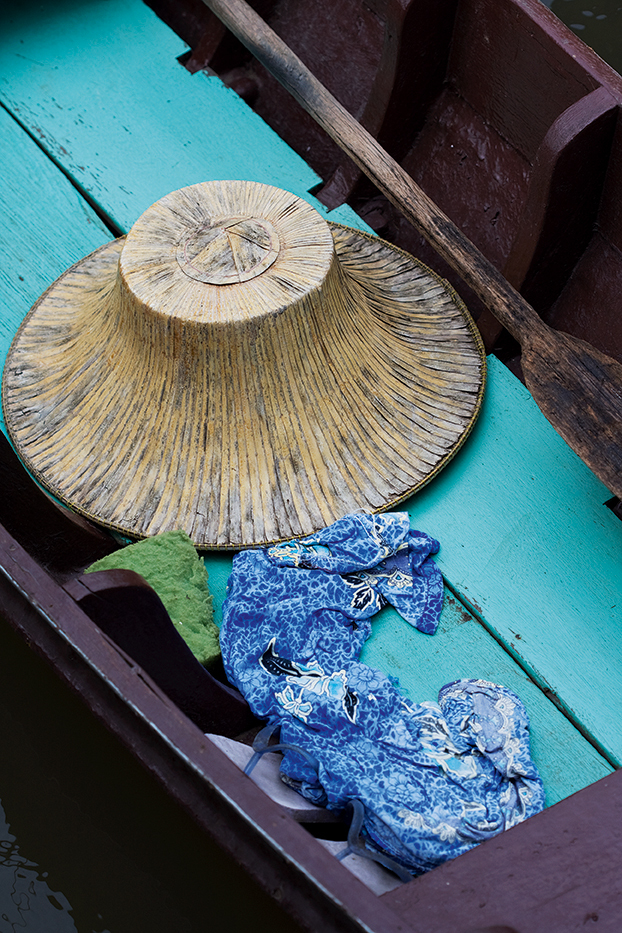
THE DETAIL Fly from Bangkok to Trat, then take a bus to Laem Ngop. From here it’s a 45-minute speedboat to Koh Mak.
Tricky to access and even harder to leave, the Togians’ wild,
scalloped bays and driftwood-dotted shores epitomise desert
island clichés. Out of the 56-island archipelago, Kadidiri boasts
the most resorts (three) with nightly bonfires accompanied by
cold beers and flowing arak, a palm wine drunk by locals.
If sun-drenched solitude is high on the agenda, then Island
Retreat in Bomba is perched upon the best sandy stretch.
Further afield, Lia Beach Bungalows is a two-room hideaway
where stilted bamboo huts peer out from the cloak of shady
palm trees. With temperamental electricity limited to a few
hours a day and no phone signal, the only distraction you’ll find
is the echo of falling coconuts. Be sure to visit the jetty from
Papan to Malenge. Before the walkway was built, children
travelled by boat to the only school in the area. When the boat
wasn’t running, children swam across, clutching their uniforms
above their heads. Doubles from £20. togianislandretreat.com
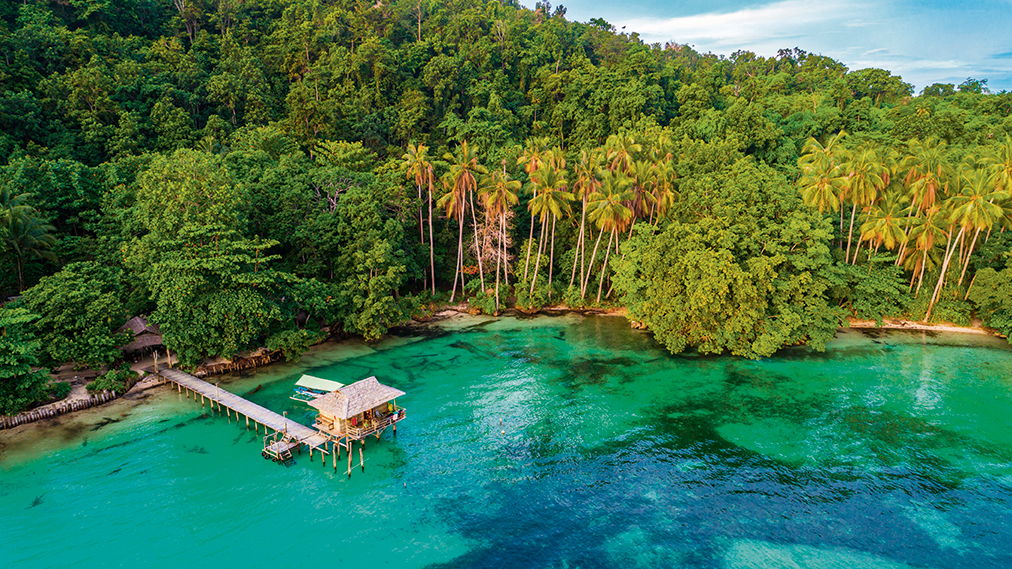
THE DETAIL Take a flight from Palu (well-connected with Jakarta) to Ampana before a ferry to Wakai (the main village).
Unlike its flashy sister Phu Quoc, Hon Nghe’s coast is clear of
oversized sunglasses and wide-brimmed hats. Instead, this wild
island welcomes intrepid travellers with jovial fishermen, virgin
beaches and year-round warm temperatures. Hosting some
of Kien Giang Province’s most sacred sites, pilgrimages are
popular as locals come to pray for prosperity and good health,
particularly during Lunar New Year (5 February 2019).
There’s little to no permanent accommodation available to
tourists, so make like a local and hang a hammock between the
palms on the beach for a night under the stars. Come morning,
climb the stairs to Guanyin, a sacred statue that faces the sea
and grants peace to those at prayer. During full moon, islanders
flock here to throw a feast. As dusk settles, the whole island
descends on the floating pontoon to haggle with the fishermen
and beachside grillers for dinner. It’s the highlight of the evening
and a tableau you won’t forget in a hurry.
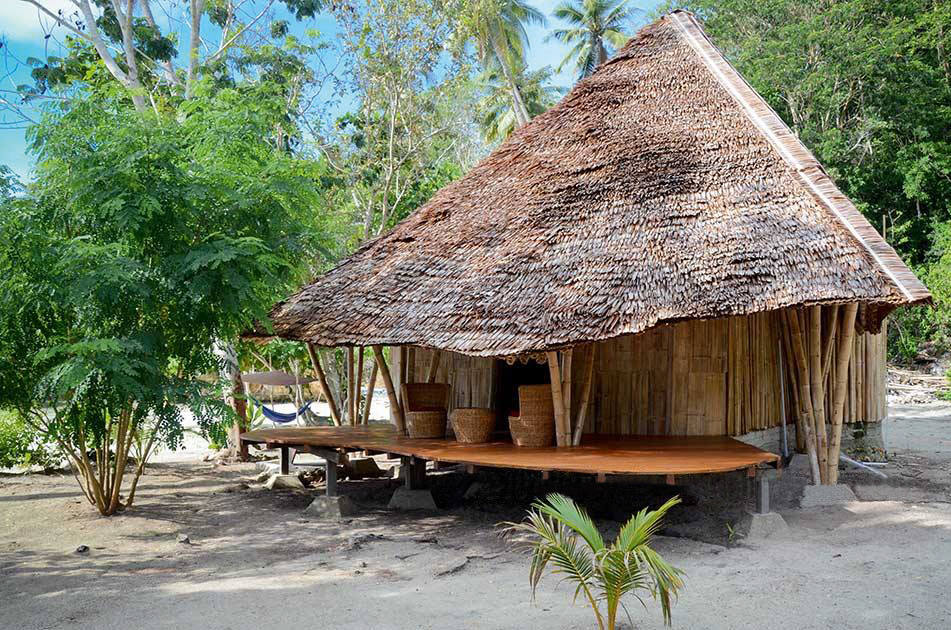
THE DETAIL Take a bus to Ha Tien Town from Ho Chi Minh City, then a coach to Nga Ba Hon Wharf for a ferry to the island.
The azure waters of Boracay and the sparkling sands of Palawan frequently grace the covers of magazines, but with fame brings crowds and these notorious nirvanas are no longer a secret. Ditch the hordes in favour of Islas de Gigantes. This cluster of ten islands is set to become the next Filipino hotspot. Head to Bantigue Island for a bucket of fresh scallops and ‘wasay-wasay’ oysters (expect to pay £1.50 for the lot) and eat them alfresco on the sandbar. After lunch, take a boat to Gigantes Sur where a steep trail leads to the top of limestone cliffs for impressive views. Cruise across to Cabugao Gamay, arguably the best-looking island and uninhabited bar a single lemonade stand, which also collects the conservation fee (£2). Accommodation is limited to a few tents and nights under the stars. If you need a hot shower, try new Solina Beach and Nature Resort near Bancal Port. Doubles from £48. solina.ph
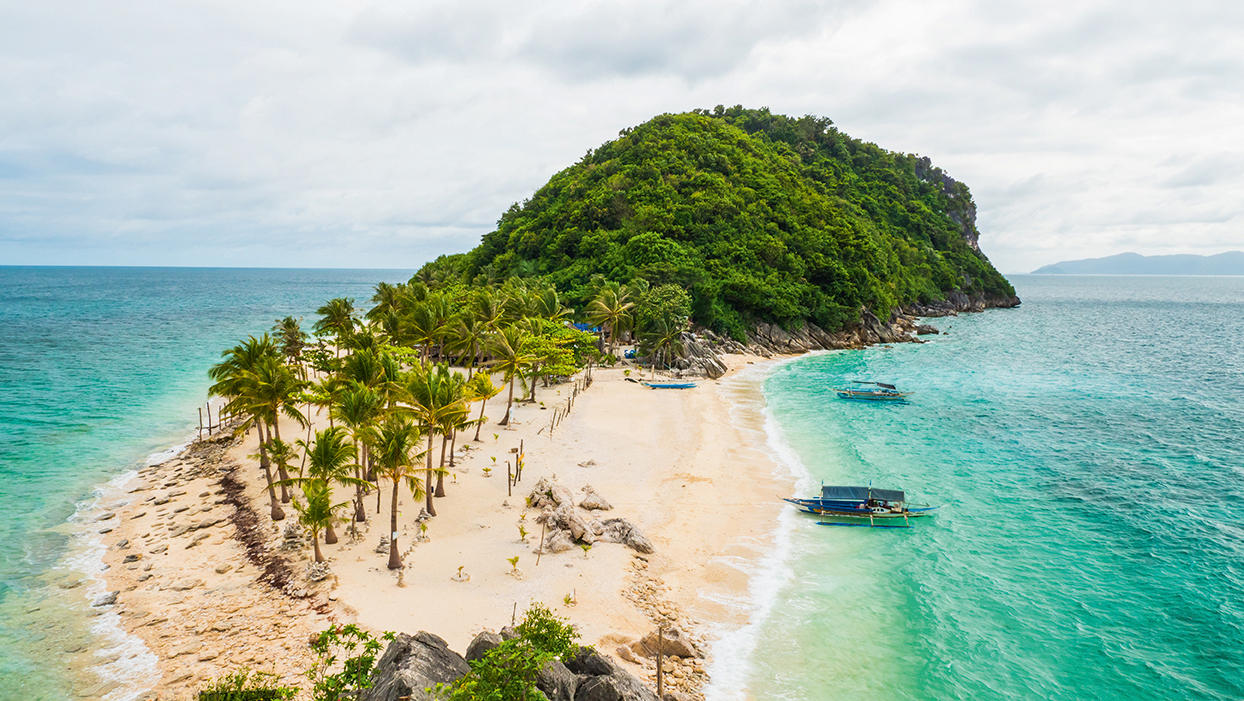
THE DETAIL Fly from Ninoy Aquino Airport to Roxas City, then head to Ceres bus terminal. From Ceres, take the bus to Estancia then catch the ferry to Islas de Gigantes.
Strewn across the Bay of Bengal 1,262km from the mainland is a chain of mangrove-cloaked islands that are revealing
themselves to the world. Kingfishers soar, hermit crabs scuttle
and the first five-star resort has just opened on Havelock Island.
The Taj Exotica boasts a spa, 50m infinity pool, two superb
restaurants and 50 villas set between banana plantations,
jackfruit and mango trees. Take some time to look around
Port Blair and remnants of the British colonial presence before
exploring some of the 572 far-flung islands.
Geographically, the archipelago is closer to Myanmar and
Indonesia, which is reflected in the sweet and spicy food. You’ll
be hard-pressed to find a better tandoori grouper than at the
Light House Residency. Tourism is the islands’ main income,
but with the slow pace of life you shouldn’t expect a polished
paradise – though there’s no denying their rugged charm.
Doubles from £260. taj.tajhotels.com
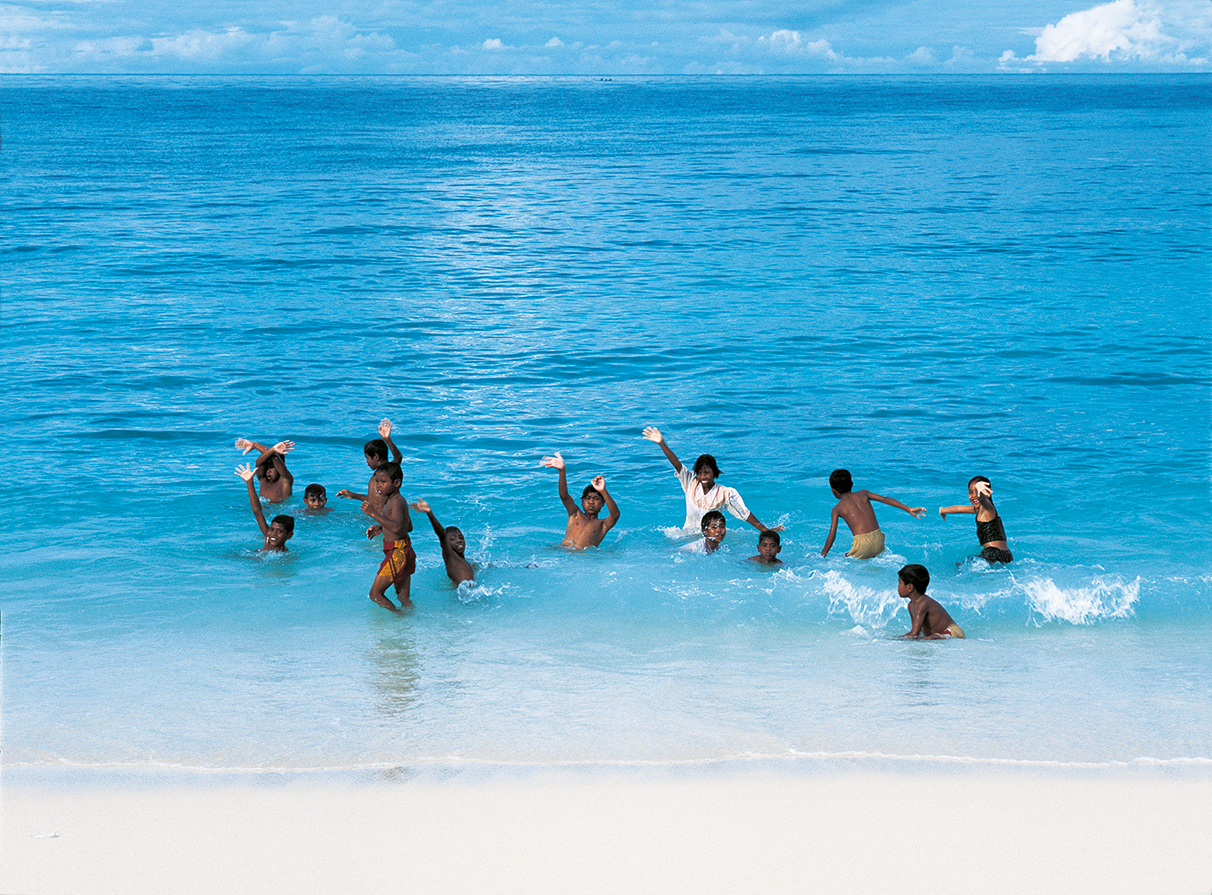
THE DETAIL Air India flies direct to Port Blair from New Delhi. Taj Exotica can organise a speedboat transfer.
For years, this island 30km off the north coast of the capital Dili was left undisturbed. Long before marine biologists imparted conservation knowledge, villages worked together to create marine sanctuaries – clearly marking out no-fishing areas, banning nets and stopping motor boats. It was only recently when international researchers found over 315 endemic species of reef fish that it has started to see visitors. A stroll around the Saturday Market – which begins at Belo Port and winds down to bohemian guesthouse Barry’s Place – offers the chance to stock up on produce from the mainland, such as Timor coffee and wild honey. Nature is all around on the island, so look up to spot bar-necked cuckoo-doves, pink-headed imperial pigeons and oriental honey-buzzards. With only 10,000 residents here, they’ll likely be your neighbours too. Doubles from £27. barrysplaceatauro.com
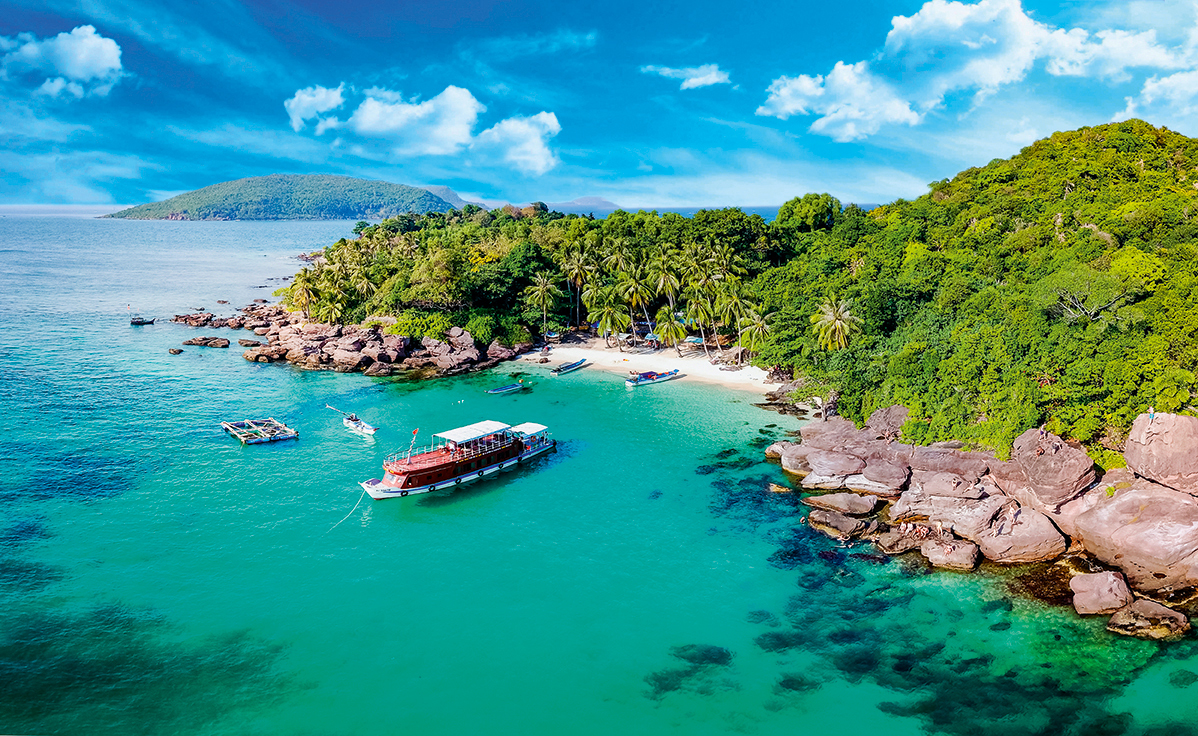
THE DETAIL Local ferries run twice a week from Dili: one runs on Thursday (named Laju) and one on Saturday (Nakroma). The trip takes about two hours.
Translating as ‘Cotton Island’ and named for its fine, powdery
sand, this island’s biggest draw is its insistence you do absolutely
nothing. With an absence of modern infrastructure, get back
to basics and borrow one of LongSha Campsite’s tents, often
decorated with dreamcatchers and coconut windchimes.
You can cover most of the island on foot in about 40 minutes,
with most of the places to eat, drink and stay found on one
stretch of beach. Start your day with banana pancakes at Kapas
Beach Chalets, stroll to Qimi for a chicken satay lunch, and head
to Kapas Island Resort Restaurant for supper of yellow coconut
curry and fresh lobster. The further away from here you walk, the
better the beaches. Five stretches of powdery sand are connected
by lemon-hued wooden walkways that snake around the rocks.
Here you’ll find a creaking driftwood swing, weathered volleyball
nets and the whole cast of Finding Nemo just moments from the
shore. Doubles from £28. kapasislandresort.com
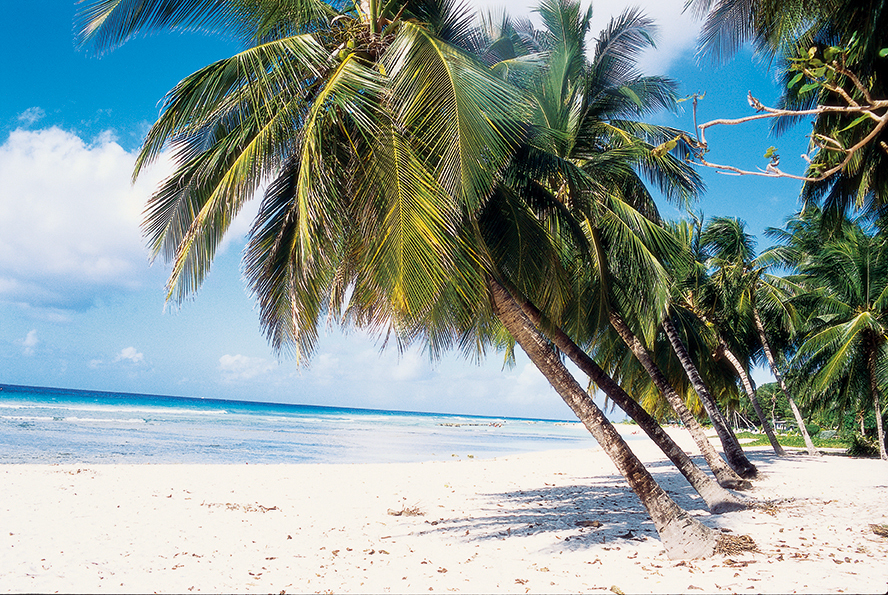
THE DETAIL Fly from Kuala Lumpur to Kuala Terengganu Airport, then take a short bus ride to Marang Jetty for the ferry.
Subscribe and view full print editions online... Subscribe